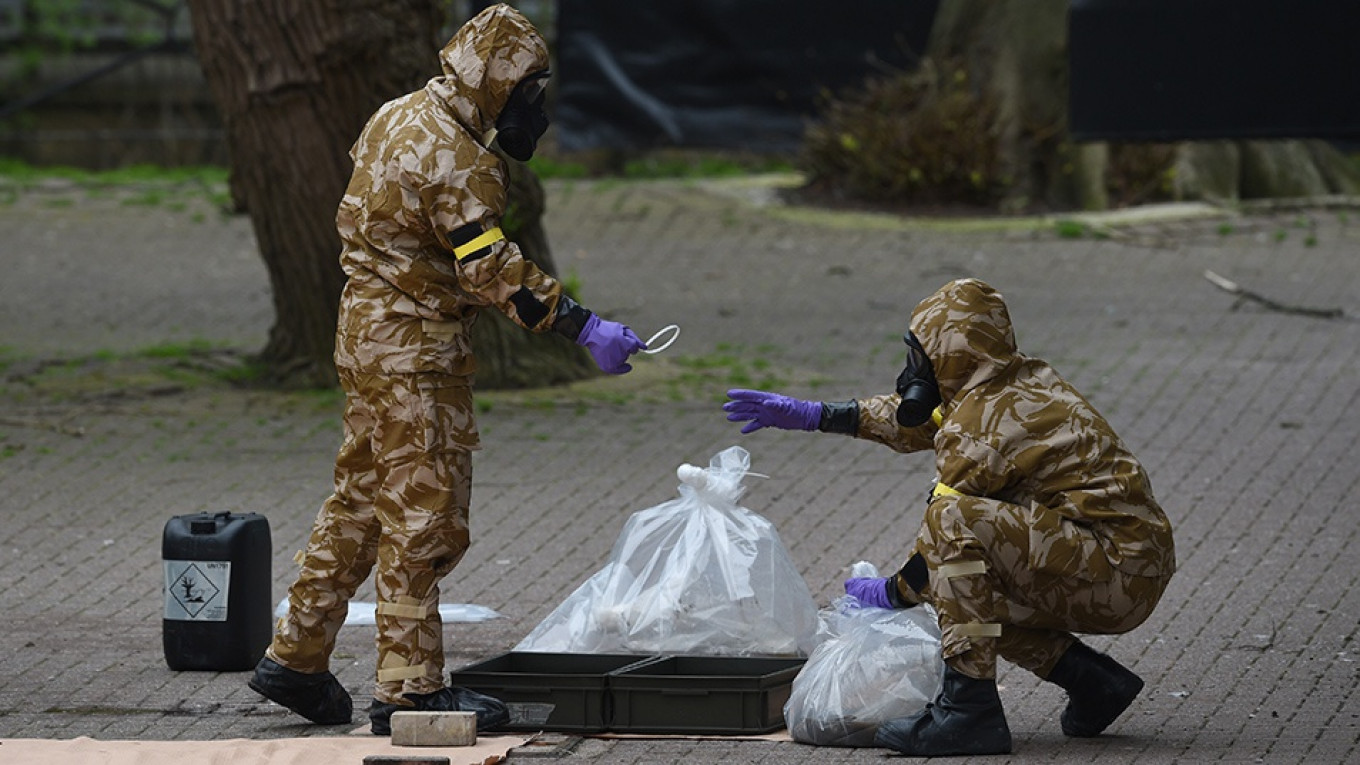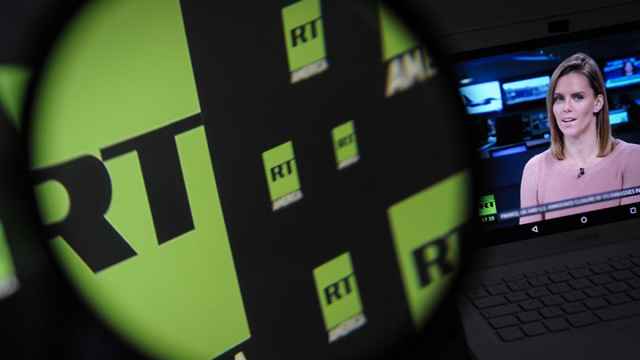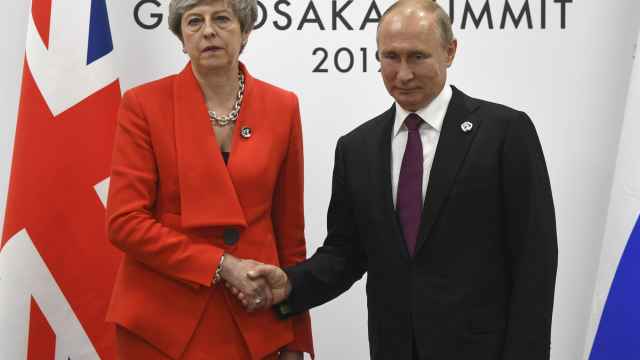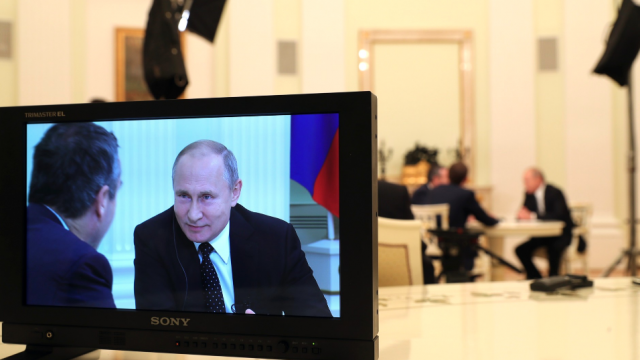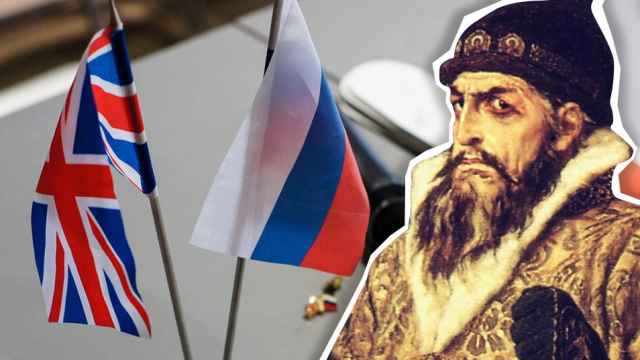Britain, which has condemned Russia over the nerve agent poisoning of an ex-spy, is pushing to give more teeth to the global chemical weapons watchdog so that it can identify those responsible for attacks with banned toxic substances.
The 20-year-old Organisation for the Prohibition of Chemical Weapons, which oversees a 1997 treaty banning the use of toxins as weapons, is a technical, scientific body which determines whether chemical weapons were used.
But it does not have the authority to identify perpetrators.
A British-led proposal, which is backed by Western powers including France, Germany and the United States and will be debated at a special session of the OPCW on Tuesday, would give the world body greater powers to assign responsibility for violations of the Chemical Weapons Convention.
The draft proposal circulated by Britain, a copy of which has been seen by Reuters, would thrust the OPCW to the forefront of the diplomatic confrontation between the West and Moscow which has seen relations deteriorate to their lowest point since the Cold War.
The Western draft is opposed by Russia which has submitted a rival proposal, the details of which are not yet known. Western diplomats said Moscow's draft, and a third text from Indonesia, were not believed to have strong political backing.
It comes as OPCW inspectors prepare a report on an April alleged poison attack in the Duma enclave near Damascus, Syria, that killed dozens and triggered air strikes by the United States, France and Britain.
Western governments have also blamed Syrian President Bashar al-Assad and Russia, which backs him, for using chemical weapons in the protracted Syrian conflict. Both deny using chemical weapons.
The poisoning of the Russian former double agent Sergei Skripal and his daughter in England in March led to tit-for-tat expulsions of diplomats by Moscow and the West. Russia has denied any involvement in their poisoning.
Up to now it has fallen to the United Nations, where a joint OPCW-U.N. team known as the Joint Investigative Mechanism (JIM) was created in 2015, to identify individuals or institutions behind chemical weapons attacks in Syria.
The JIM confirmed that Syrian government troops used the nerve agent sarin and chorine barrel bombs on several occasions, while Islamic State militants were found to have used sulfur mustard.
But at a deadlocked U.N. Security Council, the JIM was disbanded last year after Moscow used its veto to block several resolutions seeking to renew its mandate beyond November 2017.
The new British-led proposal, which so far has the support of 21 other states, comes after a steady increase since 2012 of the use of chemical weapons, mainly in the Syrian civil war, but also in Iraq, Malaysia and England.
"The widespread use of chemical weapons by Syria in particular threatens to undermine the treaty and the OPCW," said Gregory Koblentz, a non-proliferation expert at George Mason University, in the U.S. state of Virginia.
"Empowering the OPCW to identify perpetrators of chemical attacks is necessary to restoring the taboo against chemical weapons and the integrity of the chemical weapons disarmament regime."
The proposal is expected to be submitted by British Foreign Secretary Boris Johnson on Tuesday in The Hague and voted on by OPCW members on Wednesday, sources told Reuters.
Decisions must win two-thirds of votes cast to be passed.
The British proposal condemns the use of nerve agent Novichok in the Skripals' poisoning, the assassination with VX nerve agent in February 2017 of the half-brother of North Korean leader Kim Jong Un in Malaysia and the use of sulfur mustard gas by Islamic State fighters in 2015 and 2016 in Syria and Iraq.
Under the British proposal, the text of which could change before it is voted on, the head of the OPCW would establish a body "with a view to facilitating universal attribution" for attacks globally.
About 140 out of the 193 OPCW members had registered to participate in the conference, which could run until Thursday.
A Message from The Moscow Times:
Dear readers,
We are facing unprecedented challenges. Russia's Prosecutor General's Office has designated The Moscow Times as an "undesirable" organization, criminalizing our work and putting our staff at risk of prosecution. This follows our earlier unjust labeling as a "foreign agent."
These actions are direct attempts to silence independent journalism in Russia. The authorities claim our work "discredits the decisions of the Russian leadership." We see things differently: we strive to provide accurate, unbiased reporting on Russia.
We, the journalists of The Moscow Times, refuse to be silenced. But to continue our work, we need your help.
Your support, no matter how small, makes a world of difference. If you can, please support us monthly starting from just $2. It's quick to set up, and every contribution makes a significant impact.
By supporting The Moscow Times, you're defending open, independent journalism in the face of repression. Thank you for standing with us.
Remind me later.


